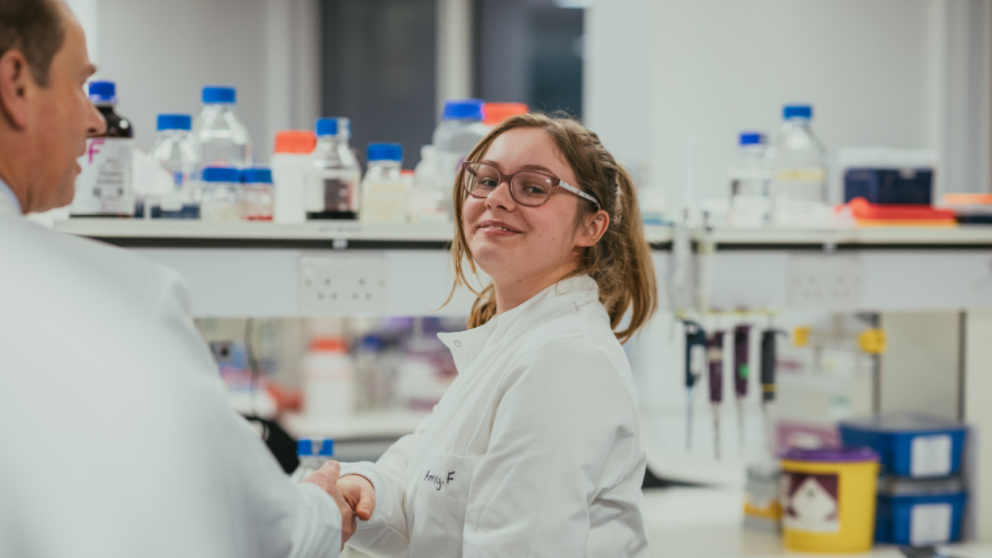Salford Host Kidscan Research Evening

The University of Salford’s charity partner, Kidscan, held an event at its main campus inviting partners and supporters to find out more about their work.
Guests were given the opportunity to meet the University’s cancer researchers and find out how their work is developing new and improved treatment for children with cancer. At the research evening there was also an exclusive screening of Kidscan’s new charity video.
Researchers at the University of Salford are looking at ways to reduce the late effects on the heart caused by a drug used to treat childhood cancer. Dr David Greensmith, The University of Salford said: “We do have anti-cancer drugs at the moment such as Anthracyclines that are incredibly good at treating cancer, but they are known to cause damage to the heart, and heart failure later in life. Today’s cancer survivors go on to become tomorrow's heart patients.
“One of the ways that anthracyclines kill cancer cells is by causing the cells to go into oxidative stress, which then leads to the death of the cancer cells. The problem is the heart is incredibly sensitive to oxidative stress... What we’ve developed in the lab is a better understanding of how cyclins alter calcium cycling, we’re also developing new ways to measure that oxidative stress.”
Richard Dennis, Chairman of the Board, Kidscan added: “Opening our doors in this way is essential for Kidscan and our wider family: that researchers we fund get to meet our ambassadors – childhood cancer survivors – to emphasise the importance of their work. Our supporters can see how impactful their fundraising can be on both finding safer, more effective treatments for childhood cancers and on children’s lives. Plus, people who have been touched by childhood cancer know that we are doing our utmost to ensure that children diagnosed with cancer in the future will not only survive, but they will also thrive”
About Childhood Cancer
In the UK, over 20% of children who are diagnosed with cancer will not survive because treatment options are limited.
Of those who do survive, 60% will develop life-altering disabilities such as hearing loss, infertility, major organ & bone problems and even heart failure. These side effects are progressive, can appear long after treatment has finished, and mean that 25% will not see their 30th birthday.
Dr. David Pye, Kidscan Scientific Director said: “The journey for children doesn’t finish when they are cured, because the poisonous treatments used cause these late effects that manifest themselves many, many years down the line. The problem is getting people to understand that there is a difference between treating childhood cancer and that we are not funding it enough.”
For all press office enquiries please email communications@salford.ac.uk.
Share:
